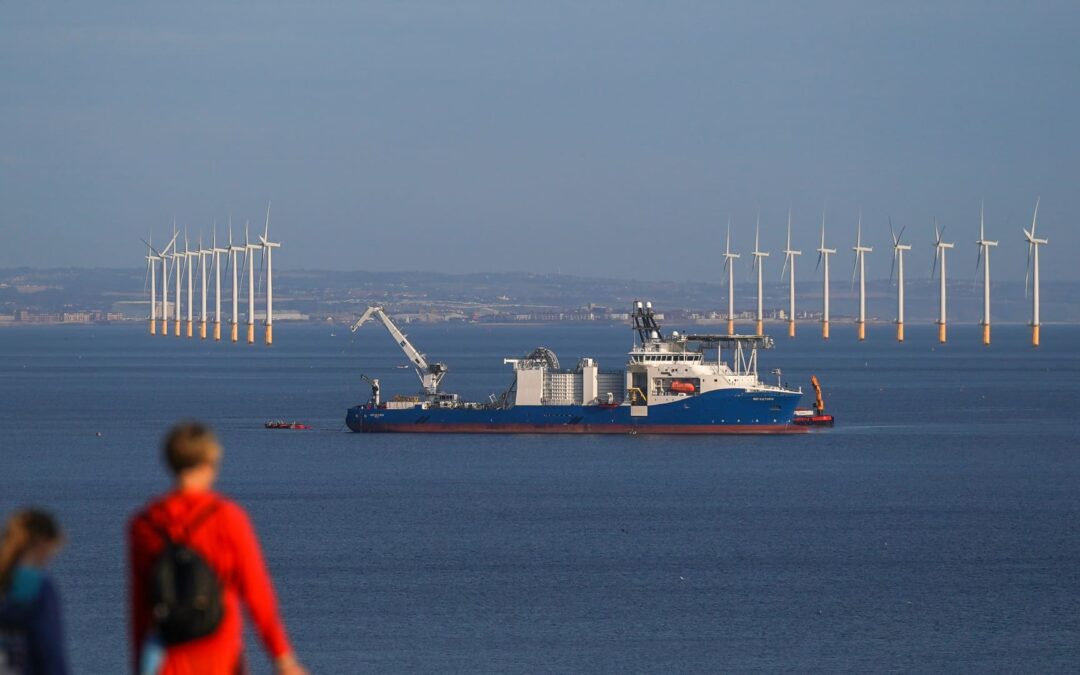The NKT Victoria cable laying ship operates off the coast of Marske by the Sea as it lays cable as part of the Sofia Offshore Wind Farm project on August 17, 2024 in Marske By The Sea, United Kingdom.
Ian Forsyth | Getty Images News | Getty Images
U.S. President-elect Donald Trump on Friday called on Britain to “open up” the North Sea, accusing the country’s Labour government of “making a very big mistake” with its energy tax policy.
His comments came in response to a report about U.S. oil and gas producer APA Corporation unit Apache’s plans to end its operations in the North Sea by the end of 2029.
The Texas-based company said in an SEC filing last year that continued production in the U.K.’s North Sea had become uneconomical due to the impact of Britain’s windfall tax, a policy officially known as the Energy Profits Levy (EPL).
“The U.K. is making a very big mistake. Open up the North Sea. Get rid of Windmills!” Trump said on social media platform Truth Social.
Britain’s ruling Labour Party said in October last year that it would increase a windfall tax on North Sea oil and gas producers to 38%, up from 35%, and extend the end date of the policy through to March 2030.
The money raised from the windfall tax will be directed to support Britain’s transition away from fossil fuels, which the government says will bolster the country’s energy security and energy independence.
Britain’s Prime Minister Keir Starmer stands near a wind turbine during a visit to the RWE Brechfa Forest West Onshore Wind Farm in Pencader, south Wales on August 20, 2024.
Ben Birchall | Afp | Getty Images
CNBC has contacted a spokesperson at Britain’s Department for Energy Security and Net Zero to ask for a response to Trump’s social media post.
Shell declined to comment when contacted by CNBC. Top British North Sea producer Harbour Energy and energy major BP were not immediately available to respond.
The North Sea is regarded as one of Britain’s best sources of consistent offshore wind energy and several European countries alongside the U.K. have pledged to turn the area into Europe’s biggest “green power plant.”
The rapidly growing offshore wind sector has endured a torrid time in recent years, however, hampered by rising costs, supply chain disruption and higher interest rates.







